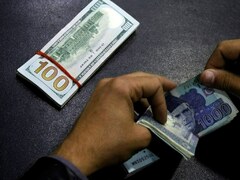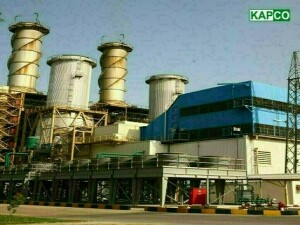Sources in the Economic Affairs Division have expressed serious concern about the failure of some private sector foreign currency borrowers to repay either the principal or the interest accruing on the principal to the Government or the lenders. However, due to the sovereign guarantee provided by the Government to the lenders, it has been left with no option but to pay the interest and the principal amount as and when these fall due. This is, indeed, an unfortunate situation and mirrors the large number of non-performing loans (NPLs) of several commercial banks that the Government has been at pains to restructure in an effort to bring a semblance of discipline to the banking system of the country.
As the commercial banking sector has had to grapple with the additional problem of political patronage, the establishment of the National Accountability Bureau (NAB) is seen by many as a step in the right direction. While NAB staff is appointed by the Executive, which has led many to allege that its decisions have a political bias, the fact remains that it does represent an institution empowered to deal with a specific problem.
A restructuring of NAB maybe in order to dispel the perception that it operates under the direction of the Executive rather than working for the good of the general public - the real victims of banking fraud and non-performing loans. A lesson learned from NAB is that not only must discretionary powers of its staff be minimal in an effort to ensure justice for all but also that its staff be seen to take decisions independent from any directives from the Executive.
As a lesson learned from NAB perhaps, the Economic Co-ordination Committee, (ECC) the highest economic decision making body of the country, is considering not giving any discretionary powers to any committee in an effort to resolve the issue of non-payment of private sector foreign currency borrowings.
The ECC has, reportedly, decided to convert the foreign currency loans into rupee loans fixed at the prevalent level of ten-year Pakistan Investment Bond (PIB). One would assume that the PIB would be a good market measure of the real rate of return on investment in Pakistan. However, the ECC is also considering obtaining advice from the Additional Secretary, Finance, on the mark-up to be charged on the converted rupee loan based on the contractual interest rate. Unfortunately his advice will not be binding and the actual decision would be made by the ECC on a case by case basis.
One would hope that if this latter option is exercised then the advice of the Additional Finance Secretary would be made binding, which would build the perception of bias-free decision-making in this respect. In addition, loans falling due between 2001 and December 2004 the average foreign exchange rate prevalent during that period would be applied.
On loans falling due after 2004 would have 2% exchange rate depreciation taken into account. The Government also needs to take action against these defaulters and, perhaps, the mechanism through which this must be undertaken is the same as that used for NPLs from the commercial banking sector: namely NAB.
Whatever the decision taken in this regard and whatever the role played by precedence in the history of this country's statutes and ordinances, the fact remains that there is no decision, including those leading to constitutional amendments, that are sacrosanct.
There is ample evidence that a new government would automatically enact its own laws and regulations. Thus to avoid reversal of good decisions it would be appropriate to take the matter to Parliament or to get a political consensus prior to announcing the policy measures. That alone is in the supreme national interest.
BR100
15,103
Increased By
140.9 (0.94%)
BR30
42,619
Increased By
540.8 (1.29%)
KSE100
148,196
Increased By
1704.8 (1.16%)
KSE30
45,271
Increased By
438.2 (0.98%)






















Comments
Comments are closed.